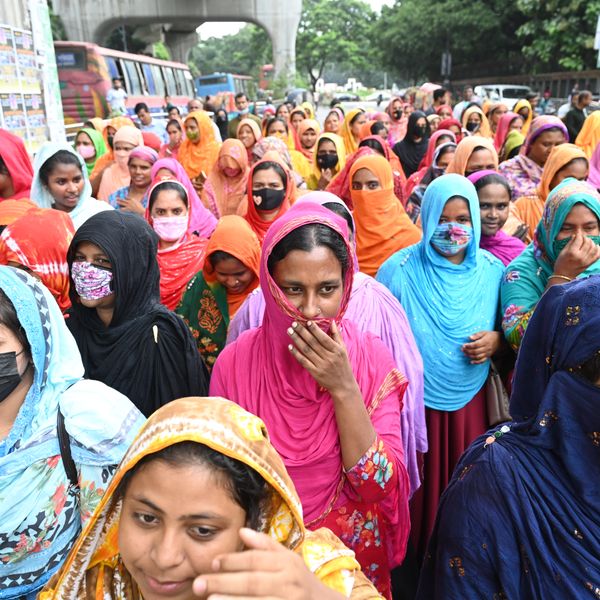The work of repairing the racial fissures that broke wide open in Ferguson, Missouri last year goes beyond the shooting death of unarmed teenager Michael Brown.
It also goes beyond ending the practices highlighted in a Justice Department report that criticized Ferguson cops and courts for shaking down the city's poor, black residents for revenue.
What else will it take? Good jobs.
Unfortunately, an upcoming Senate bill could make the underlying economic crisis faced by communities like Ferguson even worse. That legislation would "fast track" the passage of the Trans-Pacific Partnership trade and investment pact through Congress.
What's the connection to racial unrest? Simply put, it's the lack of economic opportunity that results when bad trade deals lead to the disappearance of good-paying jobs.
Hundreds of thousands of blue-collar jobs vanished after the North American Free Trade Agreement, or NAFTA, was signed in 1994. And towns like Ferguson were hit especially hard.
The St. Louis metropolitan area, home to 206,000 manufacturing jobs in 1990, only had about 113,000 left by the end of 2014, according to the Labor Department. During that same period, the region saw no net growth in trade, transportation, or utility-sector jobs.
"We used to have a ton of light manufacturing, light industrial jobs," said John L. Davidson, a St. Louis banking lawyer who writes a blog about economic issues. But now, "there are no jobs out there."
The trade deal left the St. Louis region with a mortally wounded tax base intertwined with deep-seated racial bias.
In Ferguson, local officials scrambled to balance municipal budgets through law enforcement, fines, and court fees, the Justice Department's report found.
That report quotes a 2010 email from the city's finance director to the police chief that warns, "It will be hard to significantly raise collections next year" without ramped-up ticket writing. "Given that we are looking at a substantial sales tax shortfall, this is not an insignificant issue."
That was the justification for subjecting the residents Ferguson -- 25 percent of whom live below the poverty line -- to usurious fines and penalties. These fell hardest on the city's black majority.
People were levied fines they couldn't afford for even minor offenses. Not cutting the grass low enough in front of your home, for example, could mean a $102 ticket. And when the victims couldn't pay quickly, the late penalties piled up fast.
To many civil rights leaders, bringing well-paying jobs back to African-American communities is crucial to repairing the damage done by racially discriminatory policies.
"The question of good jobs in minority communities is directly tied to the loss of these jobs overseas," the Reverend Dr. William Barber II, president of the North Carolina NAACP, recently wrote.
What these communities need is fair and balanced trade, which would mean more jobs at all skill levels for American workers, as well as higher labor and environmental standards for workers around the globe -- a true win-win.
Hanging in the balance are the Fergusons of America, whose struggles to overcome racial and economic barriers are hard enough without the headwinds of yet another wrong-headed trade agreement.


